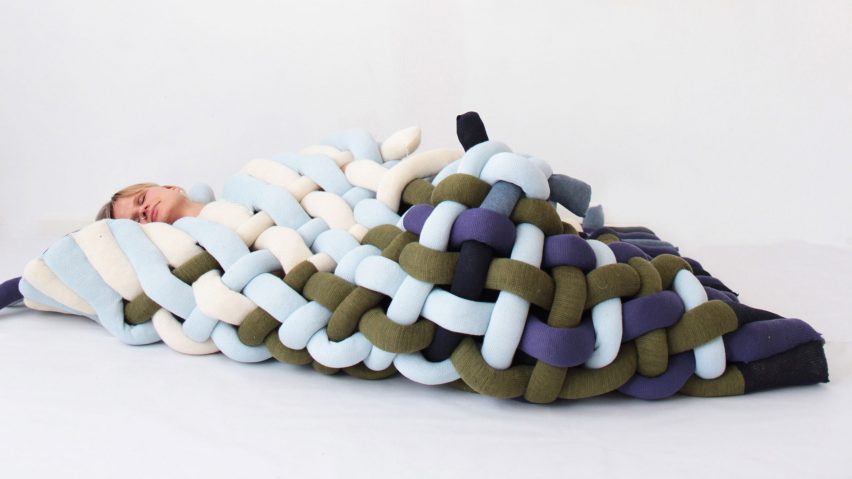
10 up-and-coming designers and studios from this year's Salone Satellite
Dedicated to the most promising designers under 35, the Salone Satellite show in Milan uncovers budding talent in the design industry. Design reporter Natashah Hitti has selected 10 of this year's future stars.
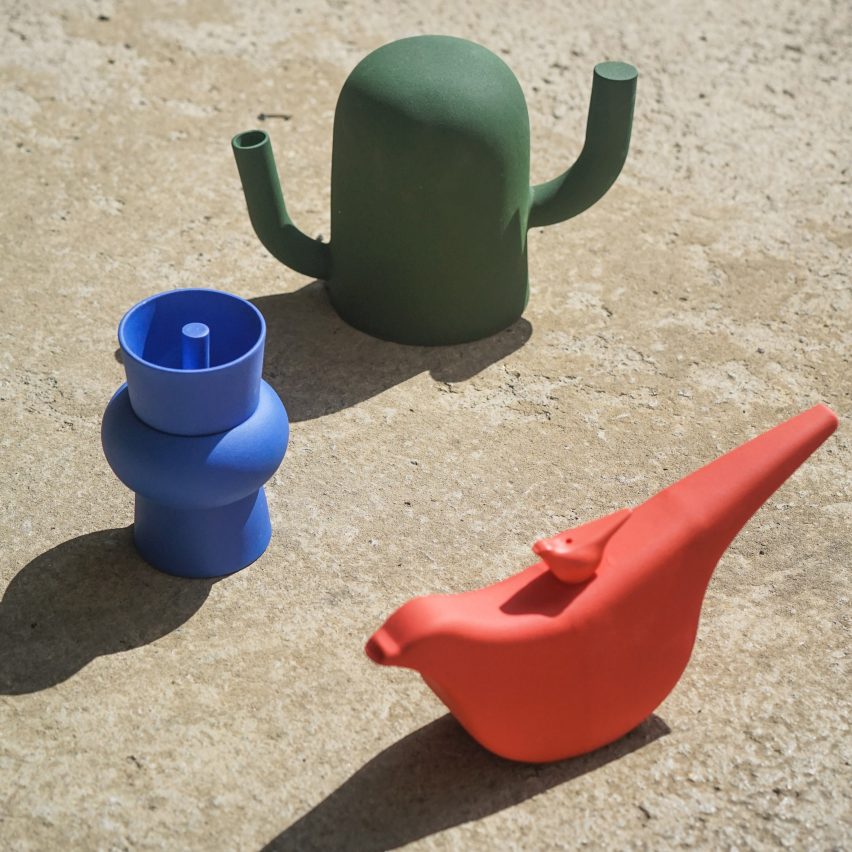
Yuue
Berlin studio Yuue presented a collection of playful porcelain tableware inspired by Chinese puzzles at this year's Salone Satellite. Comprised of a carafe, a tea cup and a teapot, each object in the collection aims to challenge the user in different ways.
The Fairness tea cup, for instance, plays a joke on greedy drinkers by leaking all its contents out if the user pours too much liquid into it, while the cactus-shaped Upside-Down carafe has a hidden opening in its underside that liquid is poured in to.
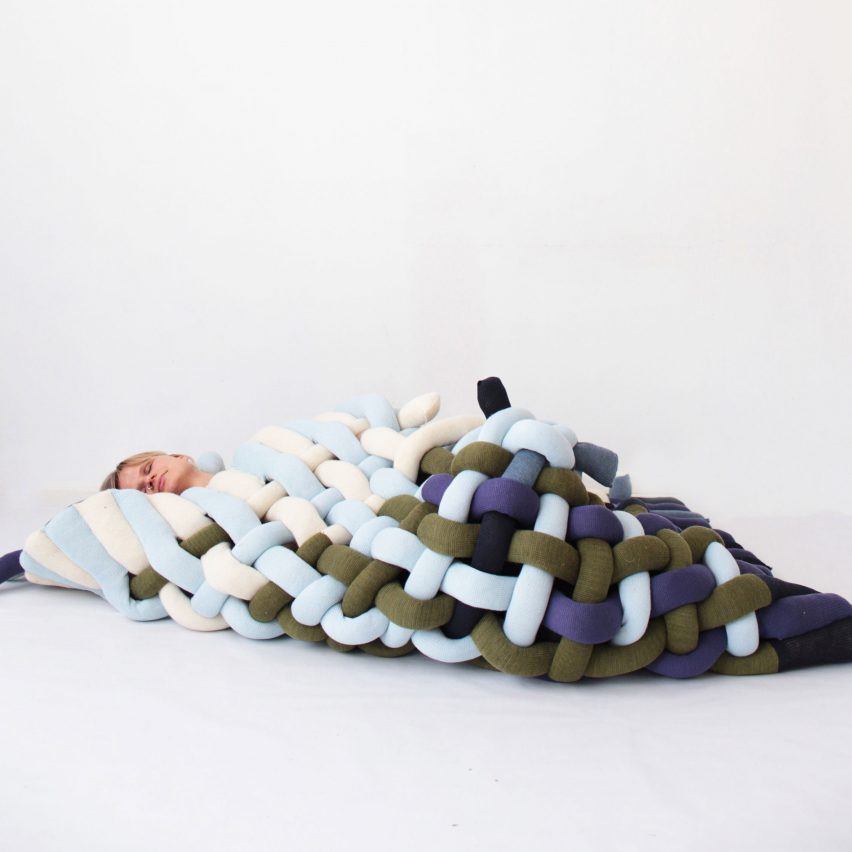
Ana María Gómez
Colombian designer Ana María Gómez has created a collection of modular textiles comprised of individual knitted bands that can be woven and knotted together to achieve different looks.
The textile series, called Ciempíes, was presented as part of a collection that aims to combine traditional craft and contemporary design. Each of the pieces are made from Peruvian alpaca wool, produced between Belgium and Colombia.
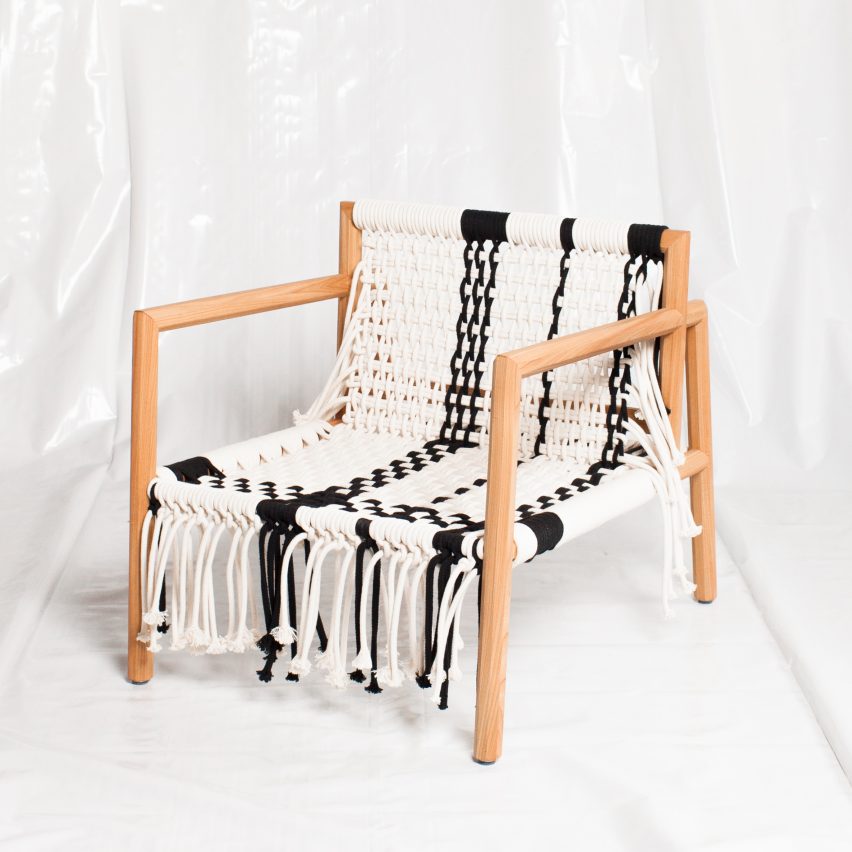
Sammlung Walter
Each of Sammlung Walter's collections come in three versions: DIY, which offers a free instruction guide to make the piece yourself, Industrial, which is serially manufactured by the studio and partner workshops, and Craft, which is a one-of-a-kind design.
The Craft edition of this WTR–001 chair features its own unique braided upholstery made from 100 per cent cotton, secured to a cubic structure made from oiled elm wood.
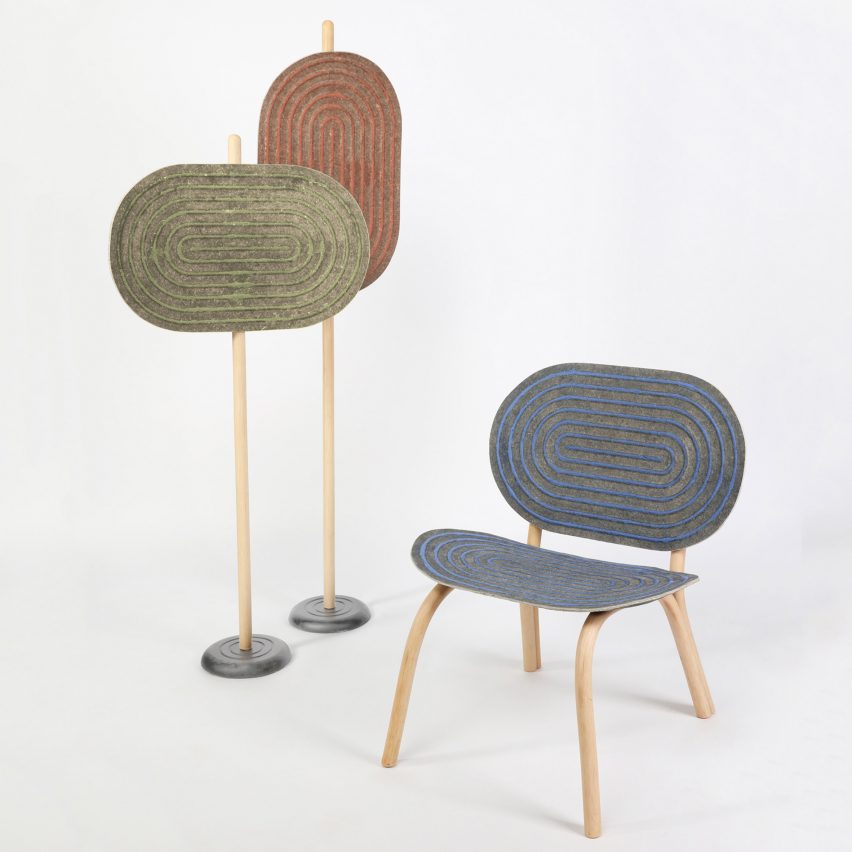
Philipp Hainke
Philipp Hainke utilises renewable resources in his Organico project, which sees the Bavarian designer create a furniture collection from hemp fibres that are pressed together using an adhesive made from calcium hydroxide and casein.
Both stable and lightweight, the hemp material features a sandwich-based structure supported by a steel or wooden frame.
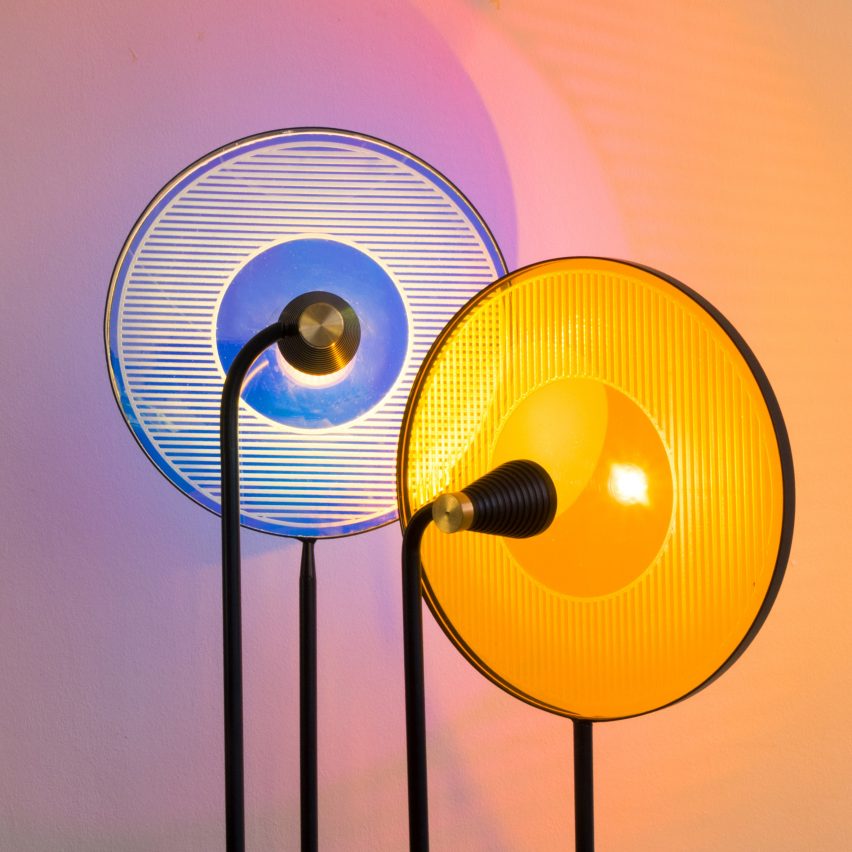
Simon Schmitz
Hamburg-based designer Simon Schmitz presented this colourful Raa lamp that plays with different angles of light. Comprised of a bulb and an acrylic shade, light is projected through the coloured shade and cast onto the wall behind.
By turning the knob at the end of the lamp's head the LED inside shifts back and forth, changing the angle of the emitted light. When the angle is widened the light projects onto the engraved part of the shade to cast interesting patterns.
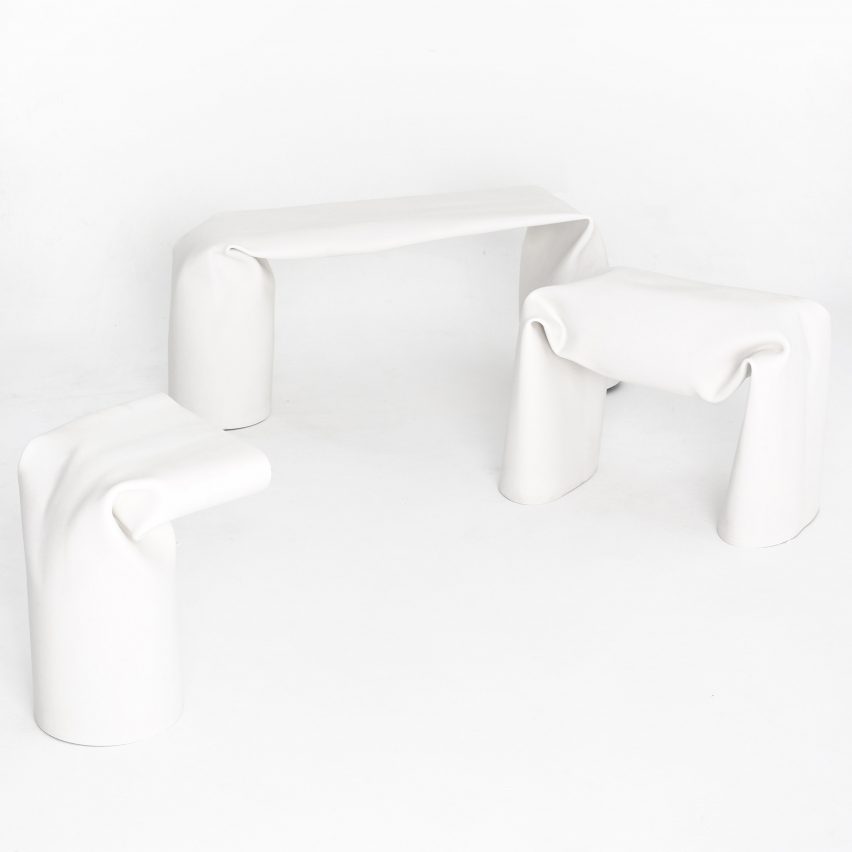
Yensuo
A series of crumpled stools and benches were among the designs presented by Shanghai studio Yensuo at Salone Satellite, which are made from recycled factory waste materials.
Called De Form, the collection is the result of experimenting with PVC tubes, which are heated and bent into the shape of seats to be used in both indoor and outdoor environments.
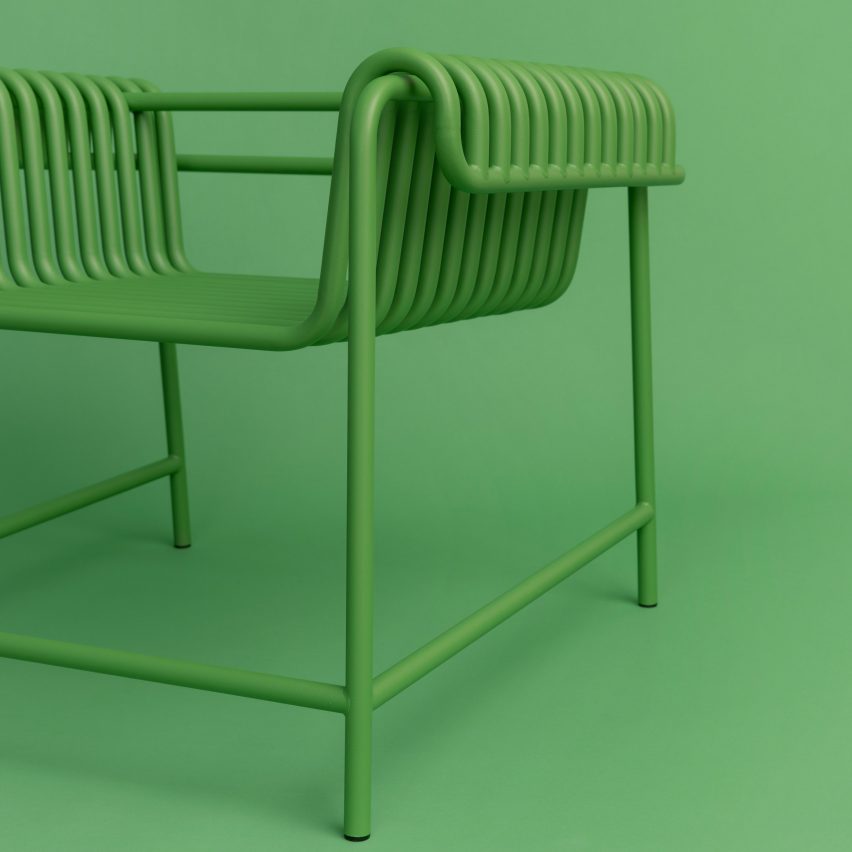
Blockbau
A vibrant green armchair made from bent, powder-coated steel tubes was among the offerings by Blockbau studio at this year's fair. Designed by former architecture students Johann Kuhn and Kevin Rack, the 22.24 chair takes its cues from structural forms.
The seat, designed as one continuous loop, folds over the base frame to form overlapping armrests. A straight tube intersects the main shell to act as a backrest, preventing the seat from slipping out of place.
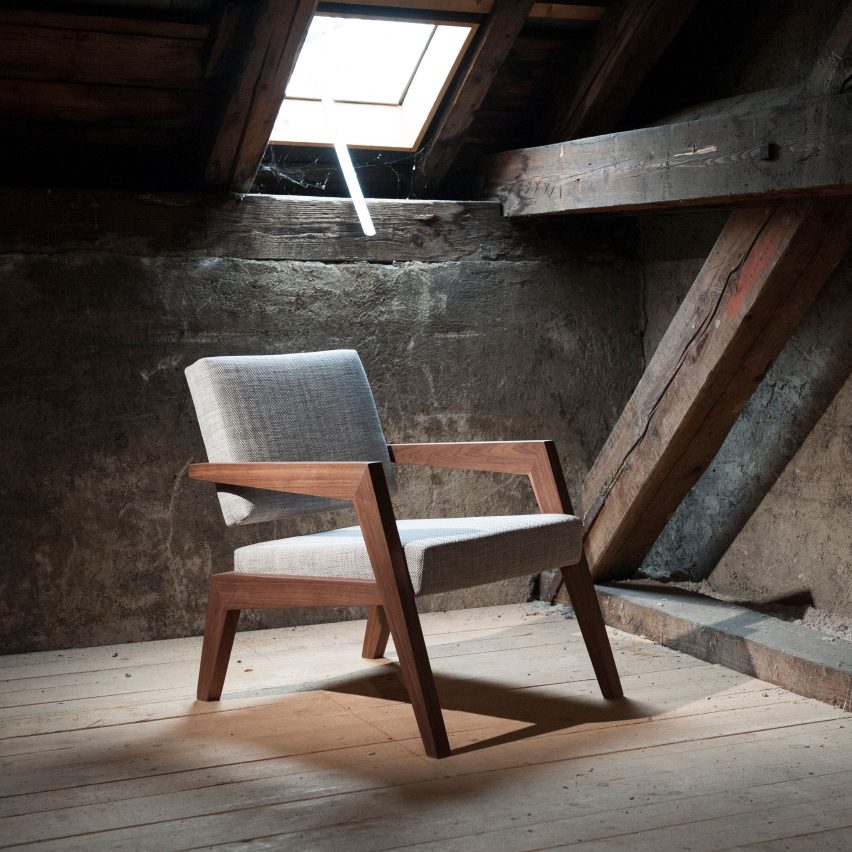
AMM
A group of Austrian architects, including AMM, came together to present a series of eight chairs at Salone Satellite that boast angular designs and wooden structures.
The Karli chair by Lukas Maier from AMM reduces the armchair to its essential components. With a floating backrest and retro-style construction, the design aims to be as minimal in function as it is in form.
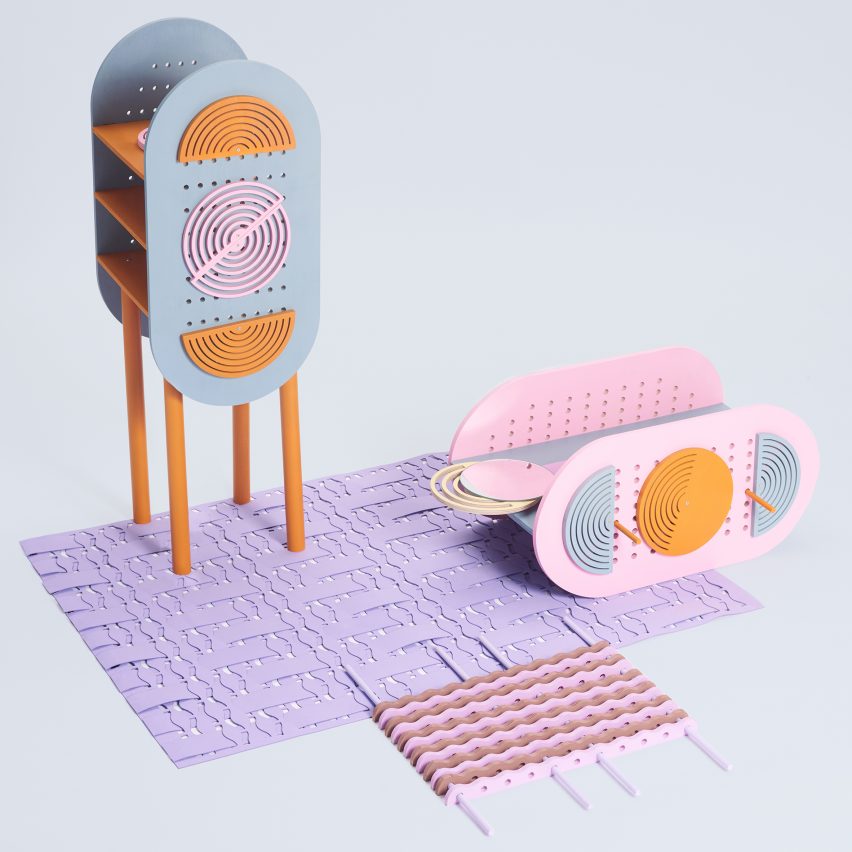
Kristel Laurits
Estonian designer Kristel Laurits presented her Sol and Condition X collections at this year's Salone Satellite, which use bright colours and playful patterns to improve the user's wellbeing.
Dedicated to the sun, the Sol series toys with the idea of furniture as a source of happiness, comprised of five flat-packable plywood furniture pieces produced with CNC and laser technology. The Condition X series features unusual surfaces and textures that aim to trigger the user's haptic and visual stimuli.
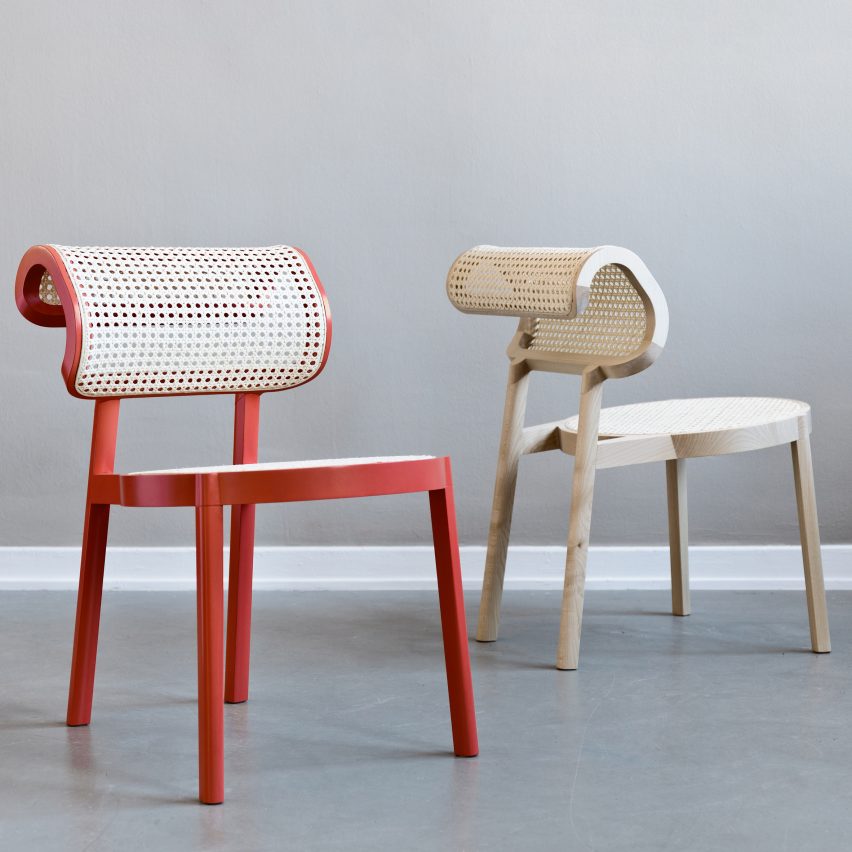
Studio Marfa
Hamburg-based Studio Marfa has put a modern spin on the traditional woven cane chair by giving it a curling backrest and a pop of vibrant colour.
Created by German designers Janis Fromm and Florestan Schuberth, the wooden elements are kept to a minimum so that the stretched cane can show its "ergonomic potential".